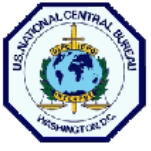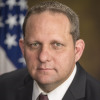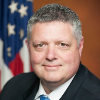Drug Investigative Division, Economic Crimes Division and State and Local Police Liaison.
Blue Notices: Trace and locate, or collect information about a person of interest in a criminal investigation.
Green Notices: Provide warnings and information for crime prevention and public safety about persons who have committed criminal offences and are likely to be involved in criminal activity in other countries.
Yellow Notices: Locate missing persons, often minors, or help identify persons who are unable to identify themselves.
Black Notices: Seek information on unidentified bodies.
Orange Notices: Provide warnings about imminent threats that are likely to cause serious damage to property and/or injury to persons, including disguised weapons, parcel bombs and other dangerous materials.
- Bureau of Alcohol, Tobacco Firearms, and Explosives
- Bureau of Customs and Border Protection
- Bureau of Immigration and Customs Enforcement
- Drug Enforcement Administration
- Environmental Protection Agency
- Federal Bureau of Investigation
- Internal Revenue Service
- Transportation Security Administration
- U.S. Coast Guard
- U.S. Department of Defense
- U.S. Department of State
- U. S. Food and Drug Administration
- U.S. Marshals Service
- U.S. Mint Police
- U.S. Postal Inspection Service
- U.S. Secret Service
Bush, Citing Security, Bans Some Unions at Justice Dept.
(by Stephen Greenhouse, New York Times)
- Table of Contents
- Overview
- History
- What it Does
- Where Does the Money Go
- Controversies
- Suggested Reforms
- Comments
- Leave a comment


Wayne H. Salzgaber was appointed acting director of the U.S. National Central Bureau of INTERPOL on October 31, 2016. Having served as deputy director during the previous year, Salzgaber took over the directorship to replace retiring former director Geoffrey S. Shank.
After earning his B.A. degree in criminology from Florida’s Saint Leo University, Salzgaber enlisted in the United States Coast Guard (USCG), serving in operational and intelligence units responsible for port security, law enforcement, humanitarian missions and antiterrorism operations. Between August 1993 and December 1997, he was a law enforcement instructor at the U.S. Coast Guard Maritime Law Enforcement School in Yorkville, Virginia.
He then joined the Coast Guard Investigative Service (CGIS) as a special agent, remaining on active duty in USCG until 2001. He would return years later to serve, until 2010, as a commission officer in the USCG Reserves.
Salzgaber’s departure from the Guard coincided with an opportunity in October 2001 at the Department of the Treasury, where he joined its Office of Inspector General (OIG) as a special agent. In June 2003, he moved to the newly formed Office of Inspector General at the Department of Homeland Security (DHS). During his seven-year tenure there, he helped establish the Office of Investigations and Special Investigations Division, for which he was named special agent in charge.
In August 2010, Salzgaber received an appointment to the Senior Executive Service as deputy assistant inspector general for investigations. In that position, he headed the DHS OIG’s Investigative Field Operations Division, which put him in charge of overseeing the agency’s investigative operations in 14 regional offices across the country. Then, in June 2012, he was made principal advisor to the Department of Homeland Security.
Three years later, in October 2015, Salzgaber was appointed deputy director of the U.S. National Central Bureau of INTERPOL, a post he held until becoming acting director.
Salzgaber and his wife, Heather, have two daughters and one son.
-Danny Biederman
To Learn More:
Wayne Salzgaber: INTERPOL Interns Get First-Hand Experience (by Tom Temin, Federal Drive—audio interview)

The U.S. Office of the International Criminal Police Organization, better known as Interpol, has had a new director since October 21, 2012. A 25-year veteran of federal law enforcement, Shawn A. Bray acts on behalf of the Attorney General as the official U.S. representative to Interpol, which is located in Lyon, France, and has 189 member nations. Since 2003, the U.S. National Central Bureau (USNCB) of Interpol has been under the alternating jurisdiction of the Department of Justice and the Department of Homeland Security (DHS), which switch off every three years.
Born circa 1966 and raised outside St. Louis, Bray earned a B.S. in Criminal Justice at Truman State University (then Northeast Missouri State University) in Kirksville, Missouri, in 1988.
Bray started his career in 1988 as a U.S. Customs Service special agent in Arizona, where he was also assigned to work for Internal Affairs. In 2003, the Customs Service was merged with the Immigration and Naturalization Service to become U.S. Immigration and Customs Enforcement (ICE), an agency in DHS. Within ICE, Bray served as a Homeland Security Investigations operations chief responsible for the Southeast region of the U.S. He also served as unit chief of ICE’s Cyber Crimes Center.
He joined USNCB Interpol in February 2010, serving as deputy director in Washington through October 2012.
Bray speaks fluent Spanish and is an enthusiastic owner of a Harley-Davidson motorcycle.
To Learn More:
A Look Inside Interpol in Washington (by Christopher Snow Hopkins, National Journal)
- Latest News
- D.C. Public Schools will Teach all Second-Graders to Ride a Bike
- New Rule in Germany Limits Sales of Sex-Themed E-Books to 10pm to 6am
- What Happened to the 6-Year-Old Tibetan Boy the Chinese Government Kidnapped 20 Years Ago?
- U.S. Ambassador to Turkey Photoshops his Hair Color to Mock Turkish Mayor
- Mystery Artist Calls Attention to Unfixed Potholes by Drawing Penises around Them
Drug Investigative Division, Economic Crimes Division and State and Local Police Liaison.
Blue Notices: Trace and locate, or collect information about a person of interest in a criminal investigation.
Green Notices: Provide warnings and information for crime prevention and public safety about persons who have committed criminal offences and are likely to be involved in criminal activity in other countries.
Yellow Notices: Locate missing persons, often minors, or help identify persons who are unable to identify themselves.
Black Notices: Seek information on unidentified bodies.
Orange Notices: Provide warnings about imminent threats that are likely to cause serious damage to property and/or injury to persons, including disguised weapons, parcel bombs and other dangerous materials.
- Bureau of Alcohol, Tobacco Firearms, and Explosives
- Bureau of Customs and Border Protection
- Bureau of Immigration and Customs Enforcement
- Drug Enforcement Administration
- Environmental Protection Agency
- Federal Bureau of Investigation
- Internal Revenue Service
- Transportation Security Administration
- U.S. Coast Guard
- U.S. Department of Defense
- U.S. Department of State
- U. S. Food and Drug Administration
- U.S. Marshals Service
- U.S. Mint Police
- U.S. Postal Inspection Service
- U.S. Secret Service
Bush, Citing Security, Bans Some Unions at Justice Dept.
(by Stephen Greenhouse, New York Times)
Comments


Wayne H. Salzgaber was appointed acting director of the U.S. National Central Bureau of INTERPOL on October 31, 2016. Having served as deputy director during the previous year, Salzgaber took over the directorship to replace retiring former director Geoffrey S. Shank.
After earning his B.A. degree in criminology from Florida’s Saint Leo University, Salzgaber enlisted in the United States Coast Guard (USCG), serving in operational and intelligence units responsible for port security, law enforcement, humanitarian missions and antiterrorism operations. Between August 1993 and December 1997, he was a law enforcement instructor at the U.S. Coast Guard Maritime Law Enforcement School in Yorkville, Virginia.
He then joined the Coast Guard Investigative Service (CGIS) as a special agent, remaining on active duty in USCG until 2001. He would return years later to serve, until 2010, as a commission officer in the USCG Reserves.
Salzgaber’s departure from the Guard coincided with an opportunity in October 2001 at the Department of the Treasury, where he joined its Office of Inspector General (OIG) as a special agent. In June 2003, he moved to the newly formed Office of Inspector General at the Department of Homeland Security (DHS). During his seven-year tenure there, he helped establish the Office of Investigations and Special Investigations Division, for which he was named special agent in charge.
In August 2010, Salzgaber received an appointment to the Senior Executive Service as deputy assistant inspector general for investigations. In that position, he headed the DHS OIG’s Investigative Field Operations Division, which put him in charge of overseeing the agency’s investigative operations in 14 regional offices across the country. Then, in June 2012, he was made principal advisor to the Department of Homeland Security.
Three years later, in October 2015, Salzgaber was appointed deputy director of the U.S. National Central Bureau of INTERPOL, a post he held until becoming acting director.
Salzgaber and his wife, Heather, have two daughters and one son.
-Danny Biederman
To Learn More:
Wayne Salzgaber: INTERPOL Interns Get First-Hand Experience (by Tom Temin, Federal Drive—audio interview)

The U.S. Office of the International Criminal Police Organization, better known as Interpol, has had a new director since October 21, 2012. A 25-year veteran of federal law enforcement, Shawn A. Bray acts on behalf of the Attorney General as the official U.S. representative to Interpol, which is located in Lyon, France, and has 189 member nations. Since 2003, the U.S. National Central Bureau (USNCB) of Interpol has been under the alternating jurisdiction of the Department of Justice and the Department of Homeland Security (DHS), which switch off every three years.
Born circa 1966 and raised outside St. Louis, Bray earned a B.S. in Criminal Justice at Truman State University (then Northeast Missouri State University) in Kirksville, Missouri, in 1988.
Bray started his career in 1988 as a U.S. Customs Service special agent in Arizona, where he was also assigned to work for Internal Affairs. In 2003, the Customs Service was merged with the Immigration and Naturalization Service to become U.S. Immigration and Customs Enforcement (ICE), an agency in DHS. Within ICE, Bray served as a Homeland Security Investigations operations chief responsible for the Southeast region of the U.S. He also served as unit chief of ICE’s Cyber Crimes Center.
He joined USNCB Interpol in February 2010, serving as deputy director in Washington through October 2012.
Bray speaks fluent Spanish and is an enthusiastic owner of a Harley-Davidson motorcycle.
To Learn More:
A Look Inside Interpol in Washington (by Christopher Snow Hopkins, National Journal)
- Latest News
- D.C. Public Schools will Teach all Second-Graders to Ride a Bike
- New Rule in Germany Limits Sales of Sex-Themed E-Books to 10pm to 6am
- What Happened to the 6-Year-Old Tibetan Boy the Chinese Government Kidnapped 20 Years Ago?
- U.S. Ambassador to Turkey Photoshops his Hair Color to Mock Turkish Mayor
- Mystery Artist Calls Attention to Unfixed Potholes by Drawing Penises around Them





Comments